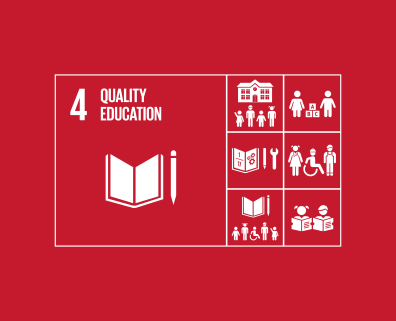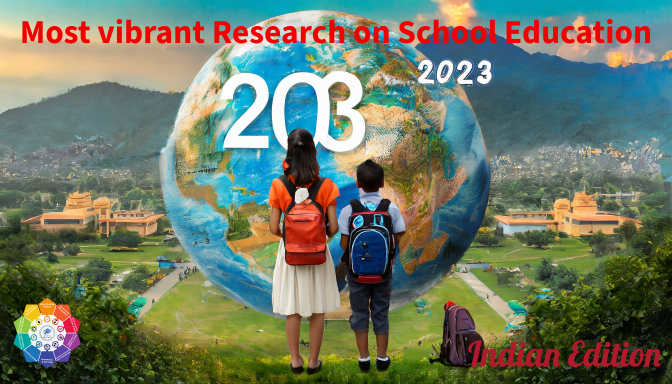
By: María Rosa López
Education is a fundamental pillar of society because this created the bases for the future of people.
A quality education is one that seeks to form the human being as a whole person who has enough knowledge to meet the challenges given to it by society. It comprises from the content to be taught as the person who will transmit the same.
Whole content for children and youth should be based on many types of information such subjects like math, history, geography, etc; to achieve adults prepared in different fields.
The information to be transmitted should be chosen based on the basic knowledge but also in the knowledge that come with social changes such as the use of computer and internet.
Those responsible for imparting knowledge and be called professors or teachers are key to quality education there because it depends heavily on the methods used for the student learning can be efficiently.
In 1990 during the summit of the Education for All starts the way to ensure that all children and young people can receive a quality education that is that they can acquire the necessary knowledge and thus fulfill social expectations that are created through the years. During this summit more than 150 countries pledged to reduce illiteracy rates in its population.
Later during the following meetings of the United Nations in 2000 and 2015, one of the main objectives it has been education for all alike as a commitment that each country should acquire.
It has great progress on this issue, but there is still more, because inequalities still exist, particularly for girls who have fewer opportunities than boys to attend school.
Education is seen differently depending on the part of the world in which we focus, this situation is quite sad because there should be the same kind of education at all sites. The most affected parts are the regions of Latin America, Africa and parts of Asia where the quality of education is not recommended, because teachers are not sufficiently trained because they do not have the resources to do so because in most sometimes their salaries are much lower.
Globally educational enrollment of school-age children has increased more than 70% but still there are about 55 million children do not attend school because they live in rural areas of extreme poverty or who live in areas of armed conflict. Another very important point is that often children and youth are enrolled in school but do not finish their primary or secondary education, so their learning levels are extremely low. It is estimated that the world’s 105 million young people who do not have literacy levels required and this amount over 60% are women there.
But one question that many people both rulers and ordinary people are made: Can you get a quality education for all equal?
As a young student can say that it is possible, but it takes a lot of commitment by different governments to invest in this area and similarly a commitment to society and especially young children.
With the Sustainable Development Goals, to achieve a quality education is a path a little easier, because it is provided to governments the tools and tips to achieve a more solid and quality education system. Ensure an inclusive, equitable, quality education and promote learning opportunities for all, it is the point number four of the seventeen goals that make The Sustainable Development Goals of the United Nations. The concept of it includes the needs that have the educational systems and ways to make reducing inequalities in them.
Among the different points of Objective Quality Education to be met by all member countries we can mention that 2030 should:
- Ensure that all girls and all children complete cycles of primary and secondary education, which must be free, fair and quality and produce relevant and effective school results
- Ensure that all girls and all children have access to care and early childhood development and preschool education quality, so that they are prepared for primary education
- Ensure equal access for all men and women to technical, vocational and higher quality training, including university education; substantially increase the number of young people and adults who have the necessary skills, especially technical and professional, for employment, decent work and entrepreneurship
- Eliminate gender disparities in education and ensuring access equal of vulnerable persons, including persons with disabilities, indigenous peoples and children in vulnerable situations, at all levels of education and vocational training
- Ensure that all young people and at least a substantial proportion of adults, both men and women, have competencies in reading, writing and arithmetic.
When having a quality education system contributes to the life of society can improve because its population to acquire knowledge have more capabilities so that more can aspire. A society that educates youth in the future will be a prosperous society.
Having a quality educational system makes a company grow, but also the opportunities to be the same for all alike is that it really does change. If you also educates girls and young women have a more equitable society, it will seek opportunities for all. Empower a woman is synonymous with hope. That education can come equally to children is the goal of all societies because it not only provides equality but also justice.
As a citizen, young student I invite others to reflect on the importance of a good education for all, where it can provide opportunities for children and young people from all social classes so that they can grow up with the knowledge necessary to participate in the present society as professionals in different areas. Education should not be a utopia but a reality.



